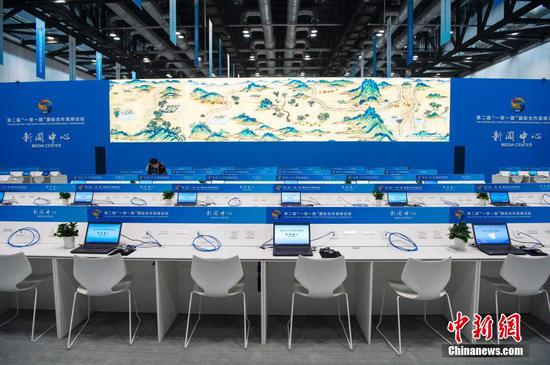U.S. companies urged to lose paranoid view, focus on understanding market
U.S. technology giants' failures in China should offer them a real lesson about how to survive in one of the world's largest digital markets by enhancing competitiveness and stop being paranoid about China's rise in technology.
Amazon finally gave up competing with its Chinese rivals such as Alibaba and JD.com and will shut down its e-commerce business in China. It has been struggling for years to keep up with Chinese e-commerce platforms such as Alibaba's Tmall, which took over a large part of the market in terms of imported products through online platforms.
Another sad story involves Qualcomm. The world's largest smartphone chipmaker reportedly plans to shut down its chipset joint venture in Southwest China's Guizhou Province soon. Some industry insiders see the project as an overly aggressive move that did not fully take into account the chip production ecosystem in China.
What's wrong with U.S. technology giants? China, with the largest internet population, is supposed to be the most lucrative market, but why did they ended up retreating from it?
Some industry observers suggested that China has been masterful at pushing to open up foreign markets for its companies while blocking overseas companies from thriving in China itself, to explain why internet giants Alibaba and Tencent could tap into the U.S. market while Google, Amazon and Qualcomm have seen their presence winding down in China. In addition, the latest rounds of trade talks between China and the U.S. have emphasized technology, as politicians and industry representatives on both sides of the Pacific are worried that the battle is cleaving the high-technology realm, particularly following the U.S.-led geopolitical crackdown on Huawei.
While U.S. technology firms are asking for more access to the Chinese market and attributing the fast-growing sector in China to state-sponsored mechanism, maybe it's time to rethink those claims. Why can Chinese technology giants be successful in overseas markets even with limited access while Amazon and Qualcomm cannot achieve their goals in China? Lobbying and asking for more market access in China is also a government-backed way for Washington to support U.S. companies.
So, stop being paranoid about China's rise in high-technology and focus more on how to increase competitiveness to embrace the fast-moving internet industry.
Overconfidence and failure to adapt to more convenient payment methods led to Amazon's e-commerce business closure, while Qualcomm's scant understanding of the local industry in Guizhou and weak connections with the supply chain caused troubles in its chipset plant.
Instead of accusing Chinese technology firms of receiving funds from the Chinese government and jeopardizing fair competition, it is time for the U.S. to go through all these failed experiences and come up with smarter business strategies to compete with Chinese rivals.

















































